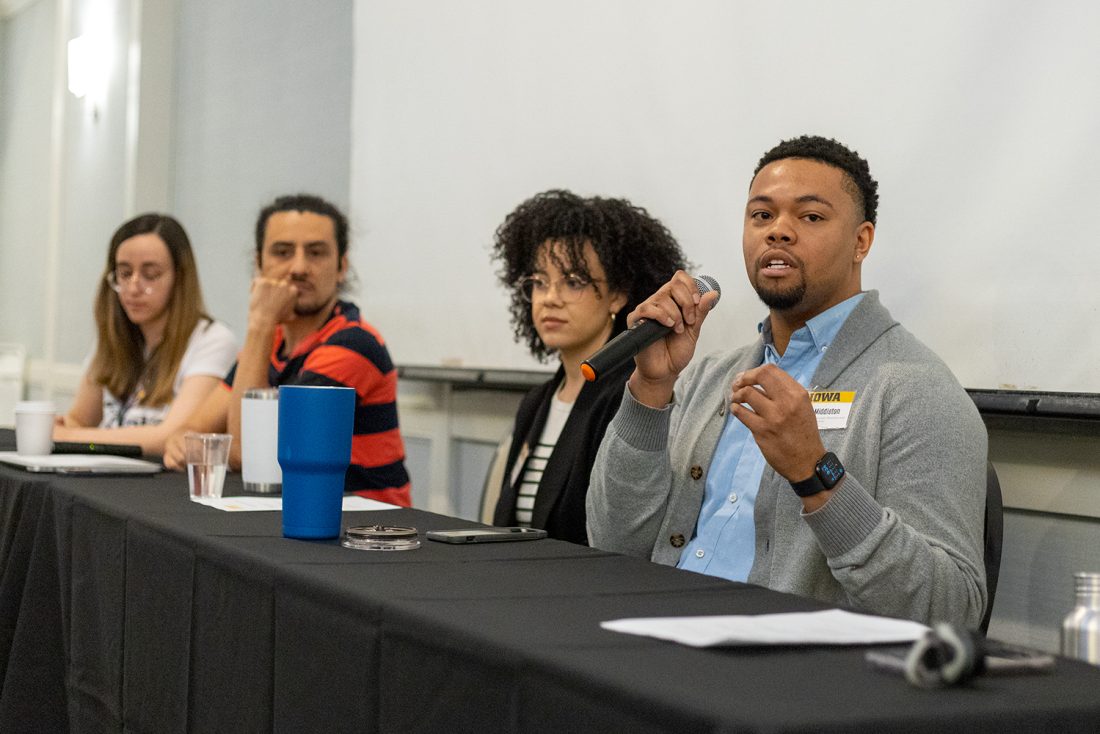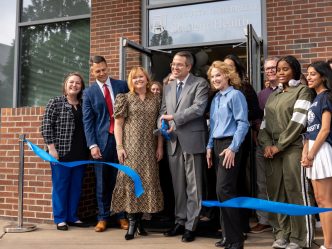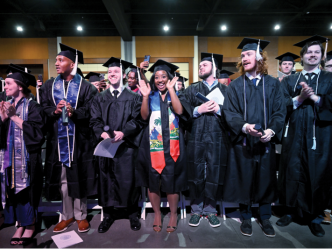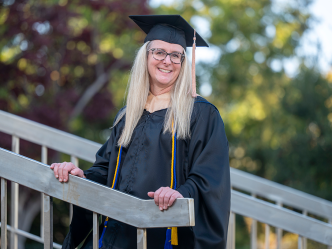After Tevin Middleton graduated from Augusta University with a Master of Education in Counselor Education in 2020, he went to work as a school counselor and wraparound services coordinator at Grovetown High School.
Being a school counselor, especially during the height of the COVID-19 pandemic, gave Middleton the opportunity to see first-hand the struggles many students face each day.
“There were a lot of students who came in with needs,” Middleton said. “For some students, they needed social support, like having a trusted adult to talk to. For other students, they were experiencing unstable housing, so I was working with a social worker and the rest of the staff at Grovetown High to ensure that we brought some stability to that child’s life.
“Other students would say, ‘Hey, I just need supplies. I just need to be able to get meals. I am struggling with food security,’” Middleton added. “All of these things were happening in the pandemic, which exacerbated the need.”
Changing the narrative
Middleton, who also holds a Bachelor of Social Work from Augusta University, has always focused on ways of bolstering mental health support within schools.
“Ever since the time I began at AU, I’ve just been drawn to the idea that schools can be a place in which the experiences of students, especially those from socially disadvantaged backgrounds, can change their narrative,” Middleton said. “If you think about individuals of color, students with disabilities, LGBTQIA students and individuals with adverse childhood experiences, they come to school and they need help to overcome the idiosyncrasies of life. And I see schools as a place to provide that support.”
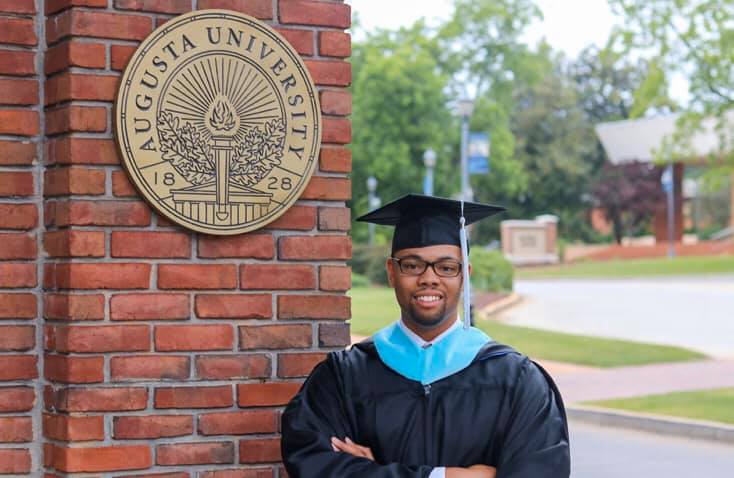
Schools should not be places that provide only academic needs to a child, he said.
“Those challenges can even go beyond just mental health needs,” Middleton said, adding that schools must understand the different community environments that each of their students face. “Because these students bring those challenges to school inside their invisible backpacks.”
“Ever since the time I began at AU, I’ve just been drawn to the idea that schools can be a place in which the experiences of students, especially those from socially disadvantaged backgrounds, can change their narrative.”
Tevin Middleton, an alumnus from Augusta University
Middleton thinks factors such as adverse childhood experiences, a national school counselor shortage, low utilization of and access to mental health services, the use of exclusionary discipline, lack of educator mental health literacy, systemic racism, impoverished communities and limitations of educators’ cultural competence can all contribute to lower matriculation for minority students.
“It’s important to have school systems with educators and school counselors who are able to assess the context in which students come from to ensure that we close achievement gaps around academics, and we’ve closed disparities around mental health and other basic needs,” he said.
Taking it to the next level
After working two years at Grovetown High School, Middleton decided to take his education career to the next level and was accepted into the PhD program in Counselor Education and Supervision at the University of Iowa.
“When I was in the school counseling practice, I realized that I wanted to have a larger impact on educational systems,” Middleton said. “I wanted to be able to follow my curiosities regarding research and community-based work where I could have a larger impact on students from socially disadvantaged populations.”
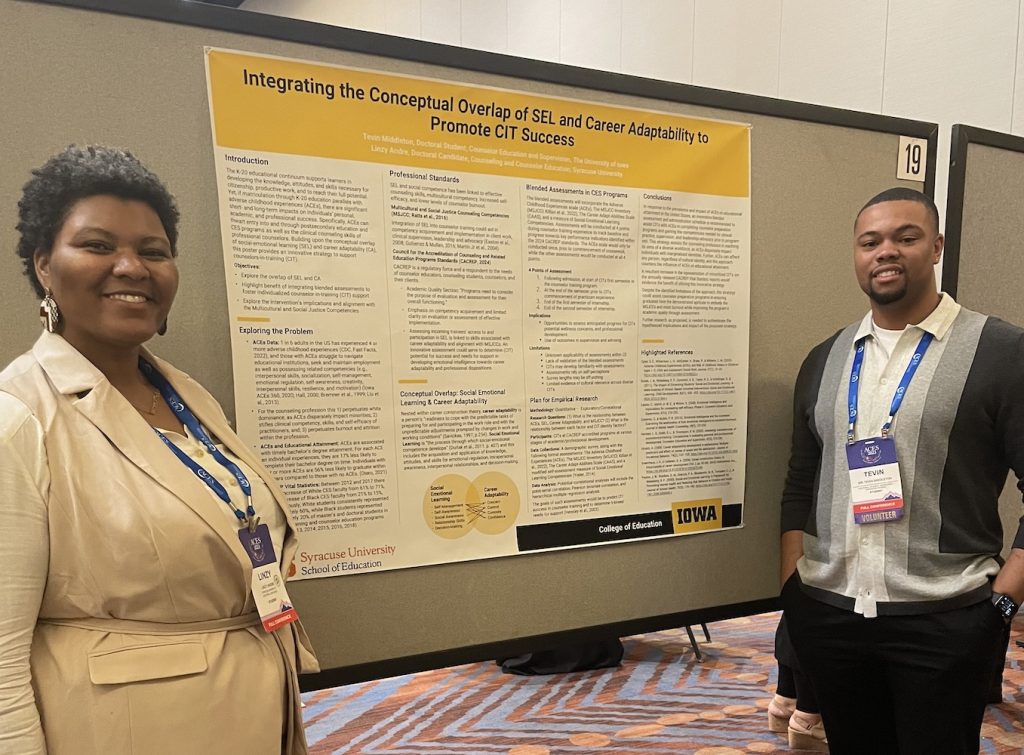
Middleton, who received a full-ride scholarship to Iowa, learned of its Counselor Education and Supervision program through Meredith Rausch, PhD, an associate professor at Augusta University and alumna of the University of Iowa.
“I found out that this was a very high-quality program, and the University of Iowa was working to support minority students in the College of Education,” Middleton said. “The school had also just established the new Scanlan Center for School Mental Health. I had already been doing things as a school counselor and school-based mental health counselor that were a perfect match for the aim of the new center.”
Bolstering school mental health support
Since enrolling at Iowa, Middleton has hit the ground running.
In September, Middleton received a $124,000 grant from the Robert Wood Johnson Foundation through its Health Policy Research Scholars program. The grant will support his research aimed at increasing the educational attainment of minority youth by bolstering school mental health supports and increasing the representation of minorities in the counseling workforce.
“Personally, as a first-generation minority person, I can say going to college can be challenging,” said Middleton, who was born and raised in North Augusta. “When I was at Augusta University, some of the faculty saw me struggling with those challenges. So, the faculty stepped up and they said, ‘Hey, we recognize that you are having some difficulties. Let’s see what we can do about giving you some additional exposure in higher ed and academia.’”
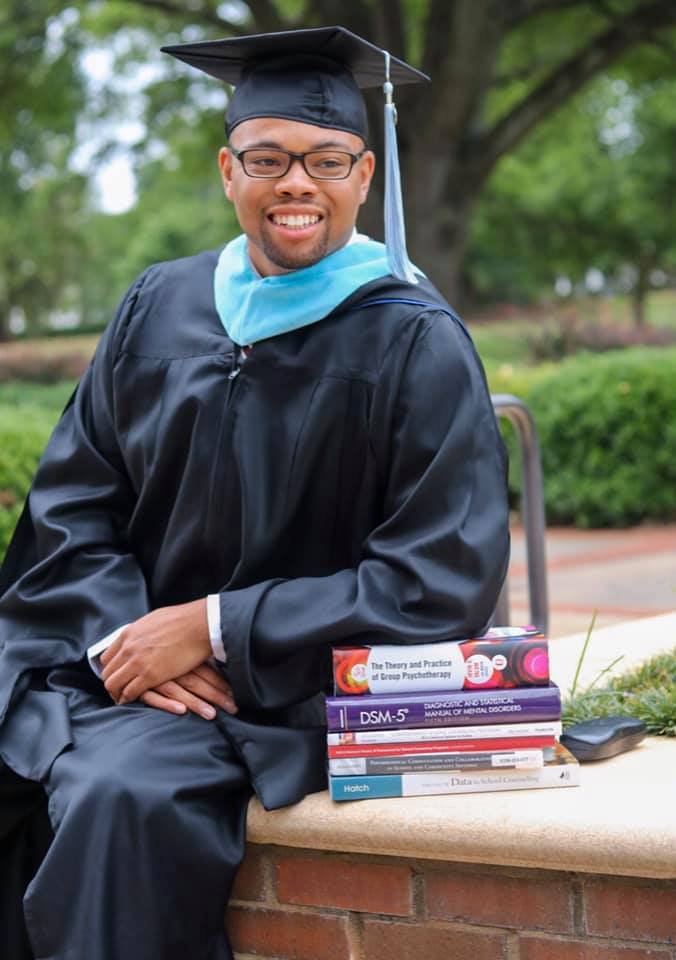
As a result of that encouragement, Middleton became a graduate assistant at the Augusta University Literacy Center, working closely with Paulette Harris, PhD, the founder of the literacy center.
“Working with Dr. (Paulette) Harris really exposed me to all things academia. I got good exposure to grant writing, I got my first publication and I was able to do several presentations with her. She had an enormous impact on me.”
Tevin Middleton, an alumnus from Augusta University
In August, the Augusta University Literacy Center was renamed the Dr. Paulette P. Harris Literacy Center in memory of Harris, who passed away in 2021.
“Working with Dr. Harris really exposed me to all things academia,” Middleton said. “I got good exposure to grant writing, I got my first publication and I was able to do several presentations with her. She had an enormous impact on me.”
Harris also taught him to think about ways to integrate his coursework into his role at the literacy center.
“Even though I was working at a literacy center, she always encouraged me to think about how the content I was learning in my school counselor program may extend or could be interwoven with literacy,” he said. “She created this space where I could think innovatively, creatively and systemically about solving problems that maybe other people weren’t thinking about. I will always be grateful for what she taught me.”
Since the fall of 2022, Middleton has served as a workforce expansion trainee for the Scanlan Center for School Mental Health at the University of Iowa. In that role, he has provided consultation to rural school counselors on integrating school mental health in their work and worked with ImagineIowa and BEST+Well, two large-scale mental health interventions to promote mental health literacy in Iowa’s schools.
Rausch said she is not surprised by the tremendous success that Middleton is having at the University of Iowa.
“Tevin has always been admired by peers and faculty in our program,” Rausch said. “Tevin continues to be a leader in the counseling world, and we are proud of him.”
Middleton believes that AU thoroughly prepared him for the doctorate program at Iowa. Upon graduation in 2026, he plans to work in higher education as a professor of counselor education.
“My experience at Augusta University was very supportive and gave me the skills to be able to solve real-world problems,” Middleton said. “Whenever anyone asks about my experience at Augusta University, I always tell them 10 out of 10.”
 Augusta University
Augusta University
